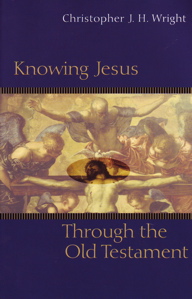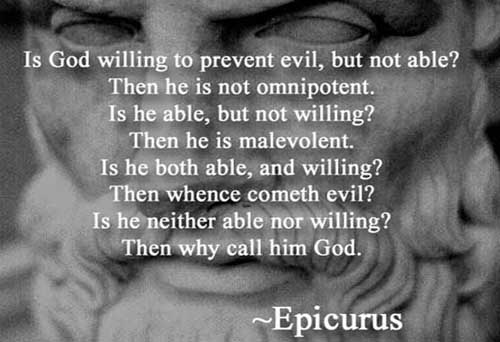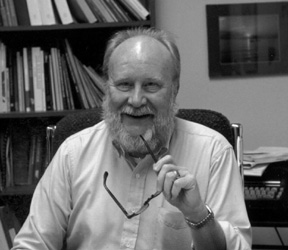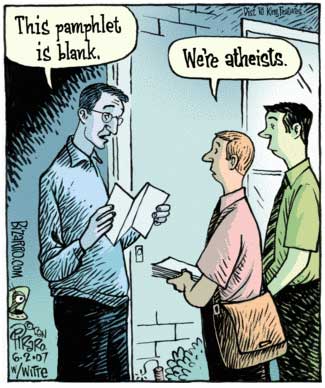 This is a review of the book Knowing Jesus Through the Old Testament, which is a scholarly examination of the Old Testament background which contextualizes Jesus and his mission. The author, Christopher J.H. Wright, is a biblical scholar having earned his Ph.D. from Cambridge in Old Testament ethics. He is an ordained Anglican and serves as International ministries director for All Souls Church in London, England. Wright is chiefly addressing the discontinuity between the two testaments in the minds of many modern Christians. The book excels at placing Jesus in his proper Jewish context. In this way, the book succeeds to correct the westernized picture of Jesus prevalent in modern evangelicalism. However, detailed criticism will be offered in that Wright seems to follow the naturalistic trend of liberal biblical criticism. While Wright’s Hebrew Bible scholarship is stellar, his Christology is earthbound.
This is a review of the book Knowing Jesus Through the Old Testament, which is a scholarly examination of the Old Testament background which contextualizes Jesus and his mission. The author, Christopher J.H. Wright, is a biblical scholar having earned his Ph.D. from Cambridge in Old Testament ethics. He is an ordained Anglican and serves as International ministries director for All Souls Church in London, England. Wright is chiefly addressing the discontinuity between the two testaments in the minds of many modern Christians. The book excels at placing Jesus in his proper Jewish context. In this way, the book succeeds to correct the westernized picture of Jesus prevalent in modern evangelicalism. However, detailed criticism will be offered in that Wright seems to follow the naturalistic trend of liberal biblical criticism. While Wright’s Hebrew Bible scholarship is stellar, his Christology is earthbound.
I was disappointed with this book. While it is masterfully written, what first promised to be a scholarly update detoured into postmodern Christology. Wright’s work is reflective of his presuppositions and methods. He seems to have naturalistic leanings. Biblical theology has been distinguished from systematic theology in that the biblical data is studied critically as an historical discipline, whereas systematic theology is more philosophical.[1] Wright’s work reveals a chasm between liberal biblical theology and orthodox systematic theology. Wright’s book simply does not logically cohere with the essential doctrine of Christ’s divinity. This criticism will be thoroughly documented through multiple lines of evidence from Wright’s book.
The New Testament unabashedly leads one to the conclusion that Jesus is God. Wright’s Old Testament biblical theology methodology masks that inference. For instance, there is no comparison between the exalted Jesus that emerges from John Walvoord’s examination of Jesus in the Old Testament found in Jesus Christ Our Lord and the Jesus presented by Wright. Conspicuously absent from Wright’s work is any discussion of Christ’s eternity past or the incarnation. For example, in Micah’s prophecy about his birth in Bethlehem it is said, “…from you shall come forth for me one who is to be ruler in Israel, whose coming forth is from of old, from ancient days” (Mic 5:2). This infers Christ’s eternality. Wright does not go there. Another example, James Montgomery Boice argues that the atonement was Jesus’ main mission and that “the death of Jesus is the theme of the Old Testament…”[2] Wright is not as decisive. Furthermore, Wright never mentions theophanies, the appearances of Christ in the Old Testament before the incarnation. According to Walvoord, “It is the teaching of Scripture that the Angel of Jehovah is specifically the second Person of the Trinity.”[3] It follows that when Jesus said “before Abraham was I AM” (Jn. 8:58) the Pharisees understood it as that claim. Nevertheless, I have to wonder if Wright does. There is a vast difference between the Christology coming from a theologian like Walvoord or Boice and a biblical scholar like Wright. Even more disappointing, the tone of Wright’s work implies such a high Christology is fanciful and unnecessary. After all, who would complain if he received a car when he was only promised a horse?
Wright’s analogy about the son that expected a horse yet received a car has limited merit. It might be useful for addressing traditional Jewish objections that Jesus didn’t meet their expectations. However, I would qualify that as, “he hasn’t yet met their expectations.” Wright seems to discount any precision at all in prophecy. Examples of prophetic precision include the exact seventy year exile (Jer. 25:11), Cyrus explicitly named 100 years in advance (Isa. 44:28), the fall of Tyre (Eze. 26) and Isaiah fifty-three’s remarkably prescient description of Jesus. Consider that a car would indeed be a disappointment if you were a jockey entering a horse race. Thus, it is more likely that when God promises a horse he will indeed deliver a horse. Most of the problems seem to stem from our expectations of sequence and timing. God is not bound by time. In the case of Jesus, it is a case of now and also not yet. I still expect very literal fulfillments of Old Testament prophecy in the millennial kingdom. While two advents are not revealed in the Hebrew Bible, there is ample reason to expect Jesus will fulfill the details the Jews are still waiting for. Unfortunately, I do not get the impression that Wright thinks so.
His discussion of typology is somewhat sobering in respect to traditional dispensational scholarship. Perhaps there has been overindulgence. However, I am critical of Wright’s treatment. Arthur W. Pink is famous for his typology of the Tabernacle. After listing a multitude of ways the tabernacle was a type of Christ, Pink remarks, “Thus we see how fully and how perfectly the tabernacle of old foreshadowed the Person of our blessed Lord.”[4] I am fairly certain Wright had Pink in mind with his criticism. Wright makes typology seem like only a human conceived analogy. In contrast, like Pink, I believe God orchestrated history as an intentional pointer to Christ. The Passover lamb, Abraham’s offering of Isaac and the sacrificial system are much more than backward looking analogies. They were planned. He is over compensating and rationalizing away the wonder of it. His criticisms are somewhat valid, we do need to understand the original context, yet it doesn’t mean the typological interpretative scheme is completely wrong, only that perhaps some have overindulged it. I agree it is not the way, as in the only way to interpret the Old Testament, but I really don’t think it is used so exclusively, even by those deemed fanciful.
Not wishing to appear fanciful, Wright often hedges. For instance, first he says most scholars are agreed that “Son of Man” was not a Messianic title. Then he works his way through three categories of “Son of Man” sayings. The idea is that these categories represent how Jesus defined himself. While it is true that “son of man” can be used a human title, Jesus referred to himself as “the Son of Man” as in a reference to Daniel 7:13. Wright celebrates this possibility with enough pomp to almost seem like worship. But it’s not a speculative matter. In fact, Jesus makes the connection for us at his trial. He claims that they will see him coming on the clouds (Mat 26:63), just like the Son of Man in Daniel seven. And it is not the first time he claimed it (Mat 24:30). Wright gives tacit acknowledgment to these eschatological passages yet does not fully allow for what they imply. For instance, the third category is that Jesus will “sometimes act as a judge on God’s behalf.”[5] One wonders, does this mean Jesus is merely God’s agent? It reeks of Arianism. Jesus is God, the second person of the trinity, but this book seems embarrassed to come out and say it.
Another egregious error is that Wright characterizes Jesus as a mere human being sorting out his own identity by reading the Hebrew Bible. The book is burdened with examples. For example, he writes:
The Old Testament provided the models, pictures and patterns by which Jesus understood his own essential identity and especially gave depth and colour to his primary self-awareness as the Son of his Father God.[6]
To the uncritical reader the ending might sound like a high Christology but I just do not believe Jesus needed assistance in his self-awareness. Jesus was not a normal man merely using the Hebrew bible to figure it out as he went along. Yet, Wright uses phrases like Jesus “drew on another figure from his Hebrew bible and that was the Servant of the Lord.”[7] This reads like Jesus is just acting out what he read. Also, Wright can’t seem to make up his mind. For instance, he first states, “Jesus here claims to be the one that Isaiah 53 was written about”[8] and then one page later hedges saying there are only “good grounds to believe Jesus saw himself are the servant figure…”[9] From this sort of tentative language, one wonders if maybe Jesus only saw himself that way. After all, people like the Reverend Sun Myung Moon and David Koresh also see themselves that way. He continues this line claiming,
In order to get the full value of this insight into the mind of Jesus, however, we must do the same as we did for the other figures that Jesus found in his Hebrew scriptures and applied to himself – especially the Son of God.[10]
Apparently, Jesus simply “found and applied”. This mischaracterization is ubiquitous. Again in chapter five, Wright discusses how Jesus was “molded and formed in his values” by the Hebrew Scriptures. This is just astounding. I hope that he might consider that Jesus did not merely find ideas in his Hebrew scriptures and apply them to himself. Perhaps the author might consider the fanciful notion that they were written specifically about Jesus and that Jesus was even present when the prophets wrote them. Indeed, if Jesus created all things and pre-existed the entire universe in perfect triune fellowship, then Wright’s “figuring it out as he goes along” Jesus just seems absurd. Jesus might ask Wright, “But who do you say that I am?” (Mat.16:15)
His contrast of the servant of the Lord as an individual with the nation is quite good. Especially in light of the rabbinic attempt to explain it away by reinterpreting the Servant as the nation post AD 70. Wright describes how the nation failed in their role and that Christ shoulders the role of the servant. Strangely, Wright now sees that role in the church. He lists four points where his biblical insights impact modern Christians: (1) the continuity of the mission from ancient Israel to today; (2) Wright points out that Paul exhorted “to the Jew first” and it was very encouraging that he does not endorse supersessionism; (3) our mission in servant-hood as exemplified by Jesus’ washing the disciple’s feet and (4) the completion of the mission in its wholeness.[11] On this final point Wright loses coherence. He writes of Jesus,
Yet it is clear that in his own lifetime he did not complete the task entrusted to the Servant of bringing the law and justice of God to the nations. Is it not then surely the case that these are aspects of the mission which he has entrusted to his servant church, those, being ‘in Christ’ are commanded to carry forward ‘all that he began to do and teach’?[12]
This is blatant eisegesis albeit creative. Actually that reference is to Acts 1:1 and it is merely Luke telling his reader that he recorded “all that he began to do and teach.” Our mission is to, “make disciples of all nations, baptizing them in the name of the Father and of the Son and of the Holy Spirit,” (Mt 28:19). Furthermore, Jesus promised to return to complete His mission (Matt. 24:30, Rev. 3:11, 22:7, 22:12, 22:20). While dominionists also promote Wright’s idea, they seem rather odd eschatological company for an Anglican biblical scholar.
This review offered a critical analysis of Knowing Jesus Through the Old Testament. The value of Wright’s work is that it succeeds at promoting the proper historic Jewish context for Jesus’ life and work. However, strong criticism was offered that the author’s methods and presuppositions lack coherence with orthodox Christology. That criticism was thoroughly evidenced from Wright’s work and compared to classic texts by respected theologians. Maybe Wright is too concerned with what other scholars think? In the end, it seems that this book promotes knowing a different Jesus than the eternal omniscient Lord in whom “the whole fullness of deity dwells bodily” (Col. 2:9).
[1]C.H. Bullock “Old Testament Theology,” in Evangelical Dictionary of Theology: Second Edition, ed. Walter A. Elwell (Grand Rapids, MI: Baker Academic, 2001), 861.
[2]James Montgomery Boice, Foundations of the Christian Faith : A Comprehensive & Readable Theology (Downers Grove, Ill.: InterVarsity Press, 1986), 288.
[3]John F. Walvoord, Jesus Christ Our Lord (Galaxie Software, 2008; 2008), 44.
[4]Arthur Walkington Pink, Exposition of the Gospel of John (Swengel, Pa.: Bible truth depot, 1923-45), 37.
[5] Wright.Knowing.150.
[6] Wright. Knowing. 135.
[7] Wright. Knowing. 154.
[8] Wright. Knowing. 155.
[9] Wright. Knowing. 156.
[10] Wright. Knowing. 157.
[11] Wright. Knowing. 174-180.
[12] Wright. Knowing. 180.







